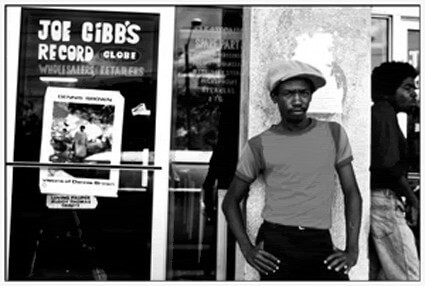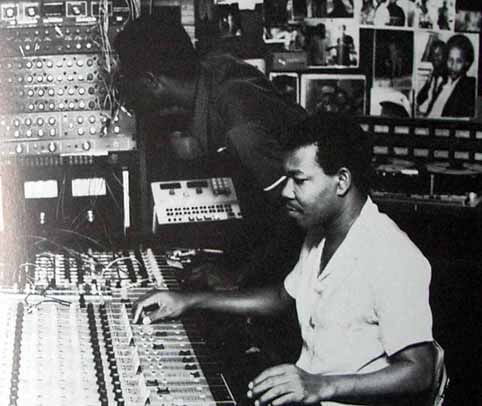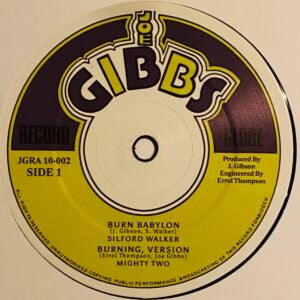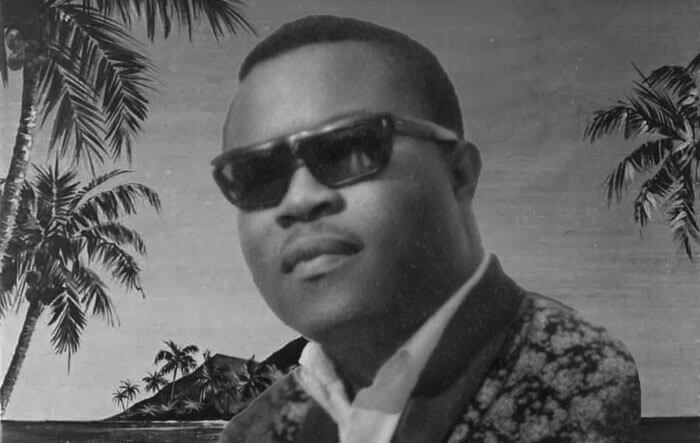Along with producer Bunny “Striker” Lee, Joe Gibbs is without doubt one of the most important of Jamaica’s musical giants.
Joel A. Gibson was born in 1943 in Montego Bay, Jamaica. When he was a young man, he worked at a US naval base in Guantanamo, Cuba, as an electronics technician. When he returned in his home country in mid-1960s, he opened a television and radio repair shop in Kingston. He also started selling records and helped producer Ken Lack as an assistant.
Becoming a record producer was the natural next step for Joe Gibbs. He set up a two-track studio in the back of his shop, and by 1967 he launched his own label, called Amalgamated. Roy Shirley voiced ‘Hold Them’ for Gibbs’ first session: the single, which was very original and topped Jamaican charts, is often considered the first rocksteady song.
After five years of underpayment at Studio One, Lee Perry joined Joe Gibbs to oversee some sessions. Perry arranged hits with the Pioneers and the Mellotones for Gibbs, and attacked Studio One owner Clement ‘Sir Coxsone’ Dodd with his landmark tune, ‘I Am The Upsetter’. But the collaboration was short and apparently the Gibbs-Perry split was not friendly, as suggested by the subsequent release of Perry’s “People Funny Boy” dedicated to Gibbs, and Gibbs’ response, “People Grudgeful Boy”.

Bunny ‘Striker’ Lee had introduced Joe Gibbs to aspiring teen singer Errol Dunkley. After working on and adapting some American R&B records that Gibbs had acquired in Guantanamo, the couple released a couple of instant hits, turning Dunkley into Jamaica’s second child star (after Delroy Wilson).
Joe Gibbs released over a hundred singles by 1971, working with artists like Ken Parker, Peter Tosh, the Slickers, and the Pioneers. He had many smash hits, also thanks to the talented young Winston “Niney” Holness who became his session supervisor after Lee Perry’s departure, and to his main studio band – Lynn Taitt and the Jets.
In the early 1970s, Gibbs launched three new labels (Jogib, Shock, and Pressure Beat), opened his new New York Record Mart in Kingston and moved his 2-track studio to 20 North Parade. During these years, Joe Gibbs released great music with the Ethiopians, Delroy Wilson and the Heptones; and he cut one of his best-known hits, Dennis Brown‘s “Money in My Pocket”. He also teamed up with engineer Errol Thompson, who had been working at Randy’s Studio. The two men would produce more than 100 number one records over the next years, and became known as the Mighty Two.

More smash hits kept on coming after 1975, when Gibbs relocated once more. But this time he had built a 16-track studio and record pressing plant on Retirement Crescent, Kingston. In addition to hits with the Mighty Diamonds, Gregory Isaacs, Jacob Miller and Prince Alla – Gibbs also released the influential roots record, Two Sevens Clash by Culture.
During the 1970s, Joe Gibbs also released instrumentals and very fine dub sides with his band of the period – The Professionals, which included bassists Lloyd Parks and Robbie Shakespeare, drummer Sly Dunbar, guitarists Earl Chinna Smith and Bingi Bunny, organist Ossie Hibbert, and various alumni from the Jets. Great classics by Joe Gibbs and The Professionals include the State of Emergency album and the four volumes of the African Dub series.
Gibbs continued to find success with the great Dennis Brown, especially with the album Words of Wisdom (1979). He also revisited his earlier DJ work with toasters like Ranking Joe, Clint Eastwood, and Kojak & Lisa – and released more successful vocals with hits by John Holt, Barrington Levy and Cornel Campbell.
Unfortunately, a dispute over a copyright issue forced Joe Gibbs to spend a lot of time in court and to eventually drop out of the recording business. He was only able to return in 1993: he rebuilt his studio in Retirement Crescent, partnered up again with Errol Thompson, and released great tracks by Alton Ellis, Gregory Isaacs, Eric Donaldson – among others. By 1998, Gibbs even set up his own offices in Miami and Brazil.
The death of Errol Thompson in 2004 marked the end of the Mighty Two. Joe Gibbs remained active by setting up Joe Gibbs Europe in 2005 and striking a deal with VP Records shortly after. He suffered a fatal heart attack in February 2008.
Few Jamaican record producers have achieved Joe Gibbs’ level of national and international success, and few were able to stay active for such a lengthy amount of time.
-
 Sylford Walker – Burn Babylon / Jah Golden Pen19,00€
Sylford Walker – Burn Babylon / Jah Golden Pen19,00€ -
 Cornell Campbell – Rope In / Louie Lepkie Love In A Jamdown (Used)10,00€
Cornell Campbell – Rope In / Louie Lepkie Love In A Jamdown (Used)10,00€ -
 Barrington Levy / Louie Lepkie – Mine Yuh Mouth / Late Night Movie19,00€
Barrington Levy / Louie Lepkie – Mine Yuh Mouth / Late Night Movie19,00€ -
 Sammy Dread – My Princess / Joe Gibbs – Princess In Dub13,90€
Sammy Dread – My Princess / Joe Gibbs – Princess In Dub13,90€ -
 Dennis Brown – Right Fight13,90€
Dennis Brown – Right Fight13,90€ -
 Ruddy Thomas – First Time Around23,00€
Ruddy Thomas – First Time Around23,00€ -
 Vin Gordon – Way Over Yonder23,00€
Vin Gordon – Way Over Yonder23,00€ -
 Dennis Brown – Joe Gibbs Discomixes Vol. 123,00€
Dennis Brown – Joe Gibbs Discomixes Vol. 123,00€ -
 Joe Gibbs & The Professionals – African Dub All-Mighty Chapter 223,00€
Joe Gibbs & The Professionals – African Dub All-Mighty Chapter 223,00€
Sources:
David Katz factmag.com
Stephen Cook allmusic.com

